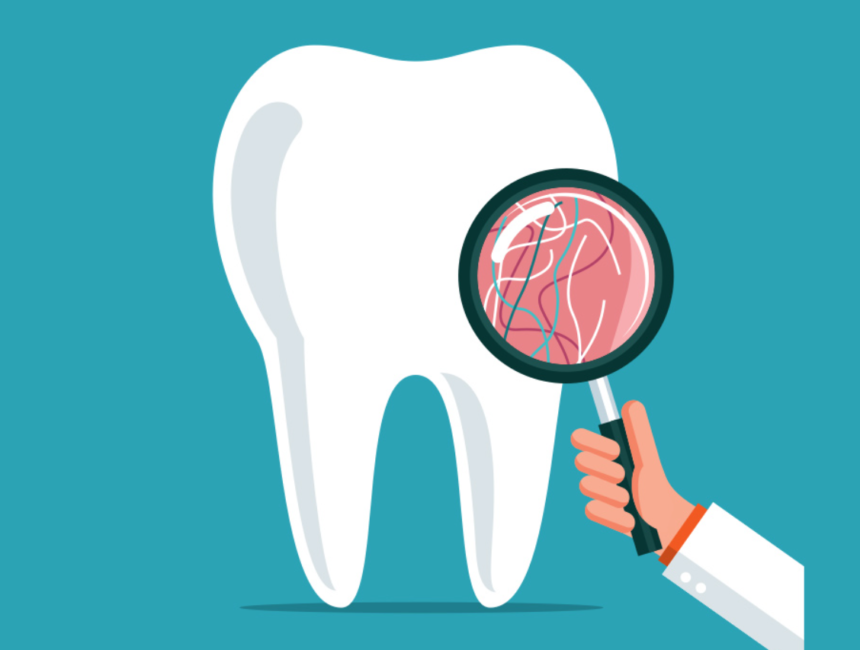In today’s competitive job market, attracting and retaining top talent is essential for business success. Employee benefits play a crucial role, with group health dental insurance being a valuable yet often overlooked component.
Providing extensive dental care benefits can significantly improve an organization’s popularity among prospective employees. Additionally, it helps retain current staff by addressing their overall well-being.
In this post, we will look at the relationship between oral health and workforce efficiency. It provides insights for employers aiming to enhance their workforce’s well-being and performance.
Reduced Absenteeism Due to Dental Issues
Dental problems, if left untreated, can lead to pain, discomfort, and even infection. These issues can force employees to miss work for appointments or to deal with the discomfort while present, hindering their focus and output. Group health dental insurance encourages preventive care, reducing the risk of serious issues and unplanned absences.
Employees with dental insurance were more likely to schedule regular checkups and cleanings. This can decrease absenteeism due to dental problems compared to those without coverage. This translates to significant cost savings for employers, as absenteeism disrupts workflows and requires filling in for absent colleagues.
However, Statista reported in 2023 that just 41% of workers had access to dental insurance via an employer-sponsored healthcare plan. This statistic highlights the need for more employers to offer dental benefits to attract and retain top talent.
Improved Overall Health and Wellness
Overall health and dental health are closely associated. Diabetes and cardiac disease are two systemic diseases that can be worsened by poor dental care. According to HWP Insurance, employers incentivize preventive care by offering dental insurance. This leads to a healthier workforce with fewer health-related absences and a lower risk of chronic disease development.
According to Penn Medicine, research indicates a connection between gum disease and an increased risk of heart attack and stroke.
Providing dental insurance encourages employees to receive preventative dental treatment. This can help them maintain excellent oral hygiene and lower their chance of developing major health issues. This results in a healthier workforce, fewer medical expenses, and long-term disability claims for the business.
Enhanced Employee Satisfaction and Morale
Employee satisfaction and engagement are higher among those who believe their bosses are concerned about their welfare. Providing dental insurance may improve employee morale and show a commitment to their health. Happy workers add value to the corporate culture, increase productivity, and reduce turnover rates.
Employees who indicated satisfaction with their jobs were more likely to rate their health benefits positively. According to Built In, such workers have a higher chance of sticking with their company longer.
Including dental insurance in a full benefits package shows a company’s dedication to its workers’ well-being and fosters a sense of worth among them. This can result in a happier and more productive atmosphere at work.
Financial Security and Reduced Stress
Dental care can be expensive, and the fear of unexpected costs can be a major source of stress for employees. Group dental insurance helps deal with this burden by providing financial assistance for preventive and restorative procedures.
Morgan Hunt states that reduced financial stress can lead to increased focus, improved work performance, and a happier workforce. Employers can help alleviate this financial burden by offering group dental insurance.
This frees up staff members to concentrate on their work without having to worry about paying for urgent dental care. Stress reduction has been linked to enhanced focus, sound judgment, and a more upbeat attitude at work.
FAQs
Can dental problems cause health issues?
Yes, oral concerns can result in serious health complications. Diabetes, cardiovascular disease, and respiratory problems have all been connected to poor dental health. Gum disease bacteria can enter the circulation, impacting several organs and aggravating pre-existing medical disorders.
Does company insurance cover dental problems?
Company insurance often covers dental problems, but coverage varies by plan. Basic plans might include routine check-ups and cleanings, while more comprehensive plans cover treatments like fillings and crowns. It’s critical to go over the specifics of your policy to determine the scope of your dental coverage.
How does employee well-being impact employee performance?
Employee well-being directly influences performance and productivity. Healthy employees tend to be more engaged, motivated, and less prone to absenteeism. Investing in well-being programs can enhance overall job satisfaction and efficiency, benefiting both employees and the organization.
The value proposition of group health and dental insurance is strong for both companies and employees. Dental benefits can significantly enhance employee productivity and overall well-being by promoting preventive care, reducing absenteeism, and fostering a healthier workforce.
Dental insurance is a wise addition to employee benefits since it provides companies with a favorable return on their investment.














